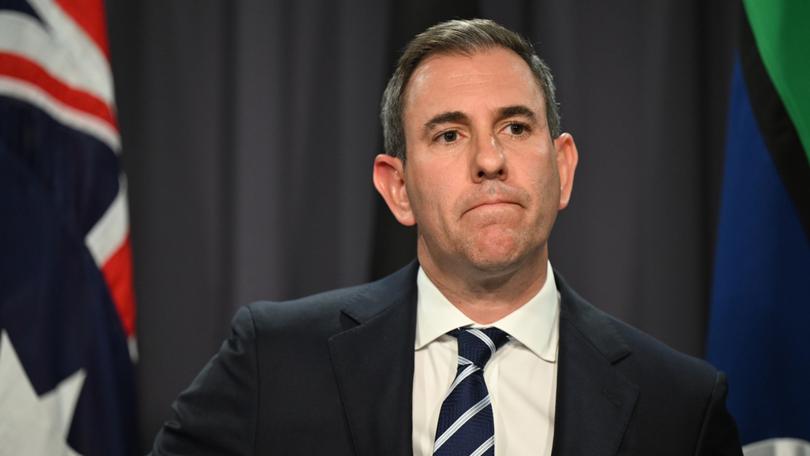State and Federal budgets have been propped up by rocketing revenue, International Monetary Fund data shows
A report from the IMF will add pressure on Treasurer Jim Chalmers to rein in spending to help the inflation fight, revealing budget surpluses have been propped up by rocketing tax revenue.

A fresh report from the International Monetary Fund will add pressure on Treasurer Jim Chalmers to rein in spending to fight inflation, revealing budget surpluses have been propped up by rocketing tax revenue.
The Commonwealth Government banked $15.8 billion in the year to June. But the IMF’s data shows that came as State and Federal taxes soaked up the largest share of the economy in at least a decade, hitting 36.4 per cent.
Australia’s budget balance — combining both levels of government — would be in deficit if the economy wasn’t running at the pace it is now, according to the analysis released on Wednesday night.
Sign up to The Nightly's newsletters.
Get the first look at the digital newspaper, curated daily stories and breaking headlines delivered to your inbox.
By continuing you agree to our Terms and Privacy Policy.It follows the leading global economic agency projecting Australia’s prices would rise 3.3 per cent next year, close to the highest rate in the developed world.
Opposition Leader Peter Dutton said Australians should be “horrified by the news” that Australia was “lagging at the back of the pack” on inflation.
Economists at EY and HSBC have warned in recent months that government spending should be tempered in a bid to slow inflation. Westpac’s Pat Bustamante warned the impact would be as significant as the mining investment boom.
Despite the troubling trend, net debt was lower than in most advanced nations.
Dr Chalmers said Australia had the third strongest budget balance in the G20 — a group of big economies.
“We’re getting the budget in better nick and paying down billions of dollars of Liberal debt,” he said.
“Our responsible economic management has helped in the fight against inflation and has helped make room in the budget for things that matter like healthcare, aged care, and defence.”
Dr Chalmers said the budget position had improved by more than $170 billion over the past two years compared to what was projected before the election.
The IMF’s report also offered a shock warning — public debt across the globe would hit an eye-watering $100 trillion by the end of the year.
“If it continues at the current pace, the global debt-to-GDP ratio will approach 100 percent by the end of the decade, rising above the pandemic peak,” the IMF’s Fiscal Monitor report said.
The influential Bank of International Settlements — which links the Reserve Bank with central banks across the globe — also took aim at high public spending this week.
BIS general manager Agustin Carstens warned governments had not adjusted after the pandemic to support central banks fighting inflation.
Mr Carstens said most governments had so far retained the confidence of investors, although public debt was at all-time highs.
“Investors will at some point want clarity about fiscal strategies,” he told a conference in Switzerland.
“Failure to deliver fiscal consolidation could pose a material risk to both macroeconomic and financial stability.”
That could mean higher interest rates on debt or a sudden collapse of a country’s exchange rate.
